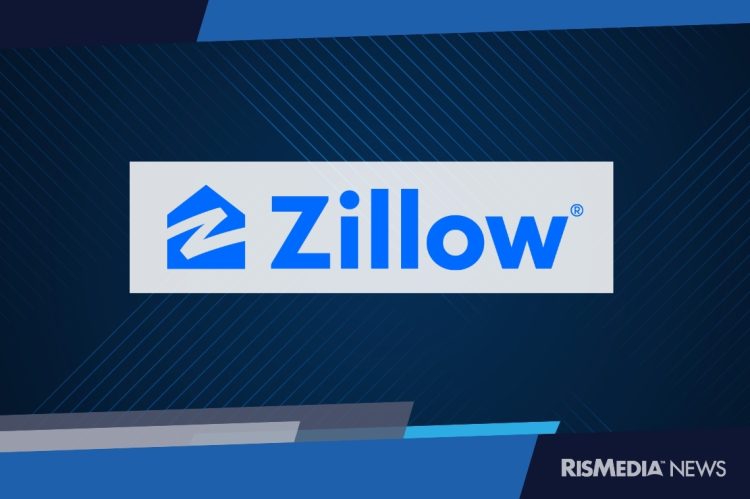In a major policy announcement today, portal giant Zillow sharply escalated a long-simmering dispute over private listings, implementing what the company is calling new “listing access standards” that will essentially boycott properties that were previously limited to internal brokerage or MLS platforms.
Speaking to RISMedia this afternoon, Zillow Chief Industry Development Officer Errol Samuelson says the new standards reflect a larger principle the company is standing behind, “the idea being that when consumers have access to information—and complete access to information—there’s better outcomes.”
“This is about consumers first, right?” he says. “Whenever we as an industry look at what the buyers need, what the sellers need before what we need as a brokerage or as a portal—if we put consumers first, everyone wins.”
The move appears also to be a repudiation of a new National Association of REALTORS® (NAR) policy announced last month that allows MLSs to prevent listings from being “syndicated” to consumer platforms like Zillow, and challenges big brokerages like Compass that have launched or expanded internal private listing platforms. Consumers will now be faced with seeing their home banned from one of the most-recognized real estate websites in the country if they choose a private listing service.
A seller who parts ways with their agent after using a private listing service, and subsequently re-lists with a new agent or broker would be eligible again to have their property on Zillow, a company spokesperson clarified.
The new standards set Zillow up for a major confrontation with those who have sought to bring more listings onto their own platforms, pitting a $13 billion household name against a swath of companies—most notably Compass and its CEO Robert Reffkin, who has argued that private listings increase seller choice. Other brokerages run similar platforms, and even some third-parties offer independent private networks for listings.
Compass has acknowledged that most of its private listings end up on the MLS, claiming that its internal platforms allow sellers to test the waters and avoid negative metrics like price drops and days on market.
Reffkin has also claimed that private listings sell for higher prices, something Zillow also disputed in its release, citing the company’s own data and studies.
Samuelson claims that brokerages and MLSs the company speaks to are “generally” onboard with the principles behind Zillow’s new standards, although he expects there to be some holdouts.
“We speak to pretty much every brokerage in the industry, whether they agree with us or not on any particular topic,” he says. “We’re talking to everyone and we’re hoping that not only our efforts, but efforts of others as well, will continue this push for more transparency, more fairness, versus going into sort of a more restrictive, balkanized world.”
Clashing with “exempt”
Zillow’s policy also appears to effectively undermine NAR’s new “exempt” listing designation, which was announced in March after almost a year of pressure from Reffkin and others to modify or repeal the Clear Cooperation Policy—although details are still sparse and how exactly the two policies will interact is not entirely clear.
In its announcement today, Zillow said even an Instagram post would count as marketing and require the listing be submitted to the MLS and published to Zillow (and other portals). NAR’s “exempt” designation specifically allows MLSs to hold listings away from Zillow and the portals while still posting them on social media or other public-facing websites.
Samuelson clarifies that it is any public marketing that would violate the new Zillow standards, which applies to all listing designations.
“Let’s say the brokerage put (an exempt listing) on their own website, then under our policy, they would also need to put it in the MLS and make sure that other brokers (are) able to display that listing. If they do that, they’re fine. If they don’t do that, then they would be subject to the standard,” he says.
Other MLSs have similar policies around partially withholding listings from broader marketing, and it is unclear how many would violate the new Zillow standards
Notably, the new Zillow standards still allow for the “office exclusives” exception created by NAR’s Clear Cooperation Policy, with the Zillow boycotts only applying to listings marketed to consumers—meaning agents can still hold listings off the MLS and share them with other agents.
Doug Miller, a consumer lawyer who was instrumental in the original commission lawsuits, told RISMedia last week that office exclusives create the biggest problems in terms of harm for consumers—and potential antitrust violations.
“This whole concept of Clear Cooperation was meant to address pocket listings, and obviously the very thing they did was to exempt out the pocket listings, the office exclusives,” he says. “There’s no good reason for them. There never has been. They are there to harm consumers and help brokers get double commissions, and that’s the only reason they exist.”
Samuelson says the company still believes there are “legitimate reasons” to keep a listing private, including as an office exclusive. The issue the company has with private listing networks is more about brokerages (or anyone else) “baiting” buyers and sellers with exclusive listings.
“Some sellers want to make that trade off and that’s fine. So you don’t want to preclude the private option, but you do wish to discourage this behavior where you’re using these private listings as bait,” Samuelson claims.
That includes a company advertising that it has a certain number of exclusive listings “behind a registration wall,” Samuelson says, even if the listings aren’t immediately accessible to the public.
Zillow also announced that eXp Realty, with its 85,000 agents, is “the first to join Zillow” and “commit” to the new policy, according to Zillow’s announcement.
“This partnership is about delivering value and building trust, two things that matter more than ever in today’s rapidly evolving real estate landscape,” said eXp CEO Leo Pareja in a statement.
Samuelson characterized the “partnership” as a broad agreement on principles rather than any specific commitment or deal, saying that Zillow sees eXp as a standard-bearer for the kind of transparency his company is pushing for.
“What they’ve done here is they’ve come out publicly and said that they support the standard that we have, that they think that this is pro-consumer, and we appreciate that,” he explains.
In its announcement, Zillow also called on other brokerages to make this same kind of commitment, through a similar public affirmation of “listing transparency.” He said that Zillow would also continue to be “vocal” on the consumer side in advocating for these values, mostly through media and research, adding that there are potential fair housing concerns with private listings—something highlighted by others in the industry.
“It’s just the principle. You’re either publicly marketing it, in which case it’s fair and equitable for everyone, or it’s private. Those are your two paths,” Samuelson says.
Editor’s note: this story was updated at 5:53 p.m. eastern time based on clarifications from a Zillow spokesperson.













Well that’s ironic. A self-serving move, to discourage other self-serving moves.
Great comment
MLS should have never aligned with Zillow the way they did in the first place. Everything they can do MLS could do better had they put together a better program with Realtor.com in my view. They’re now dictating how we need to run our business? They work off the listing agent’s inventory and make you compete with agents that aren’t even familiar with your inventory so they can sell memberships. What’s wrong with this picture?
Zillow: We’re not going to display your listing at all if you don’t give us first dibs. (So we can make more money in advertising revenue). But trust us, it’s not for our benefit, it’s for yours…
We are trying to sell properties, not spend all our mental efforts at self defense from opportunists like Zillow –and NAR? MLS? Our offices and the tithe they extract? We should be able to work per the wishes of our clients!
Probably the best move Zillow has done in a long time. Is it too early to say, “Bye-Bye Reffkin”? I mean how can stay in leadership when not a single profit has been made if fifteen years (all the while, making himself filthy rich)?
I thought COMPASS was making money. I thought I saw that in a RisMedia article. Where can I see real P&L for COMPASS.
Hi Sherry – Here’s the article we ran about Compass’ Q4 earnings. Hope it helps! https://www.rismedia.com/2025/02/19/compass-q4-revenues-way-up-losses-trimmed-ceo-bullish/
(eating popcorn and laughing at Reffkin)
Are we now moving towards another expensive lawsuit, this one between Zillow and NAR ?
Within the first two weeks after a property is entered into the MLS and is syndicated everywhere it will be viewed by the most prospective buyers. Premature syndication is not in the best interest of the home seller/client if the home isn’t yet ready to make it’s best first impression. It takes time to update and stage a home and then produce the best quality photography and videography.
If we have a contractual agreement with our seller client to conduct “soft marketing” before entering it into the MLS which starts the Days On Market count to begin, that is the business between the broker and their client. No entity or organization has the right or authority to tell a Broker how to work a contractually agreed upon marketing plan with their clients.
Doesn’t this decison make Zillow an even less reliable source for new listings.? Aren’t “private exclusive listings” in order to protect sellers from Zillow? Zillow is counting days on market, climate risk assesments, price adjustments, and walkability scores? Isn’t that the reason “sellers” are not wanting to go on the MLS? The MLS “sells” the agent content to Zillow right? So this decision is a detriment to the MLS and Zillow. Agents hate Zillow, I suspect agents will welcome Zillow steping out altogether. Maybe take them up on the offer to exclude all private listings just to avoid Zillow weighing in at all. Buyers look at Zillow but if they aren’t accurate anymore about what’s actually available I can see why Zillow is may be very very nervous about their future.
The NAR and the MLS use to have a lock on the market. You were stuck paying 5 and 6 percent. That’s $30,000 on a 500K house. Or 1/2 a new nice car. Never use a realtor. Sell it yourself, and pay an attorney to do the paperwork. The $29,000 you save can go for your new car
When an industry is driven primarily by greed and power, it’s the consumer who pays the price. In real estate, this dynamic is clearly reflected in the control of property listings. The practice of pocket listings—where properties are marketed privately rather than broadly—exemplifies this issue. These listings do not serve in the best interests of the consumer, on either side of the transaction. The practice limits the exposure of a home to potential buyers, often resulting in fewer offers and, ultimately, a lower sale price for the seller. For years, the real estate industry has turned a blind eye to the consequences of pocket listings because they help protect and maximize agent commissions. The rise of buyer brokerage followed the same logic—limiting transparency to keep commissions in-house. Pocket and private listings continue to thrive largely because many of the policymakers at the National Association of Realtors are themselves practicing agents. I believe the policy encouraging agents to secure contracts with buyers—often without monetary consideration as a contractual term—was created with a similar intent: to allow agents and brokerages to control both sides of the transaction. Unfortunately, this approach prioritizes industry interests over consumer transparency and protection. I view NAR’s move to condone private listings as more of the same. There’s simply no justification for withholding a seller’s listing due to so-called “technology” reasons. Agents are posting photos and listing details on their own private websites before sharing them with fellow Realtors. Let’s be honest — the motive behind this is pure greed.
Now, I’m no follower of Zillow either. Their relentless pursuit of profit is obvious, and their track record speaks for itself. In their book Zillow Talk, founders Rascoff and Humphries boldly claimed they would render appraisers obsolete using “pencils, measuring tapes, and Polaroid cameras.” They even touted the use of tools like “genomics, image compression, and biochemistry” to instantly determine a home’s value. We all saw how that played out — their iBuying venture turned into a financial disaster, with millions lost in the process.
Somewhere between the flawed models of Zillow and NAR lies a better way — one that truly represents the consumer in the sale and purchase of a home.